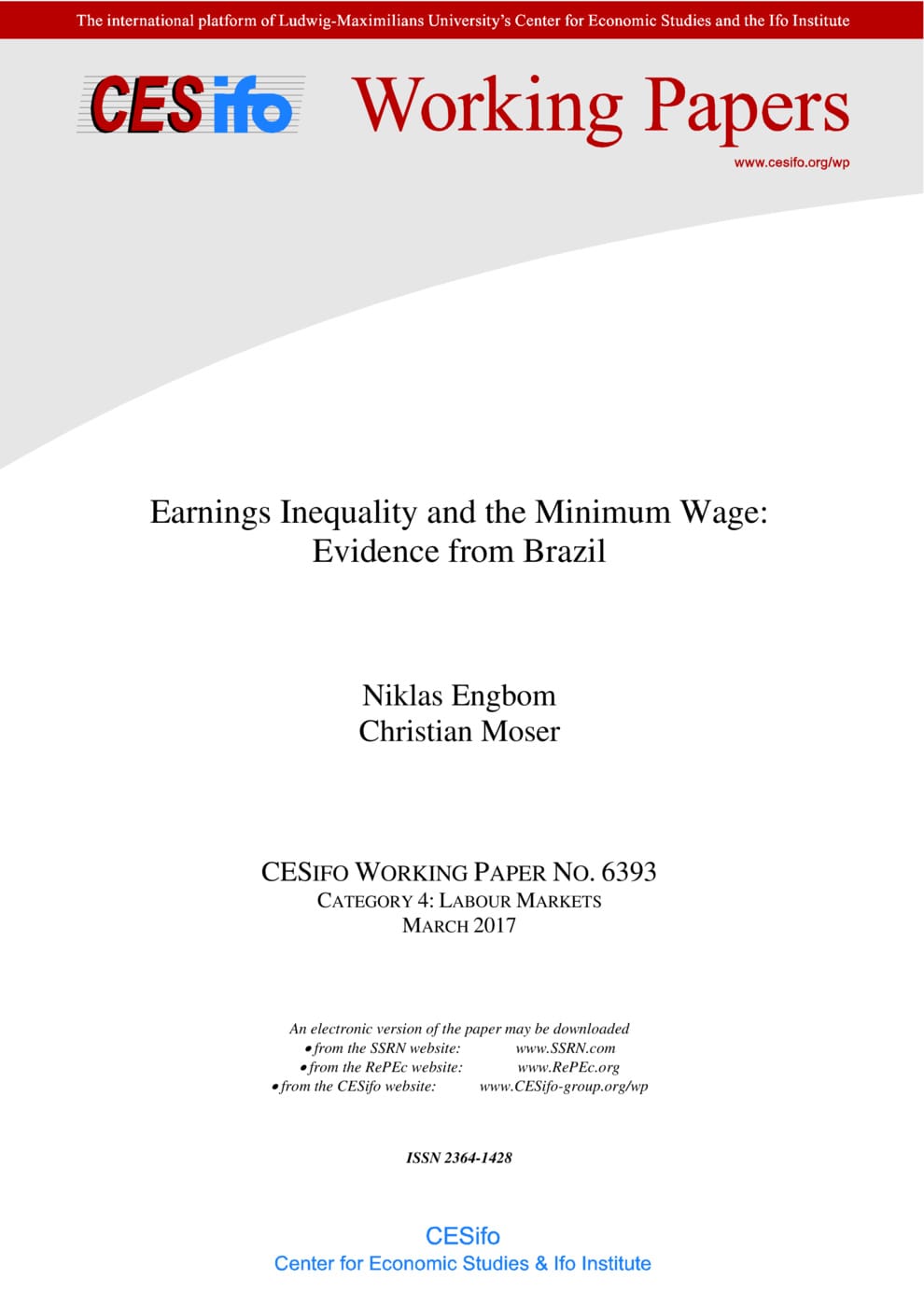Earnings Inequality and the Minimum Wage: Evidence from Brazil
CESifo, Munich, 2017
CESifo Working Paper No. 6393

We quantify the effect of a minimum wage on compression throughout the earnings distribution. Using the case of Brazil, which experienced a large decrease in earnings inequality while its real minimum wage increased from 1996-2012, we document that the inequality decrease was bottom-driven yet widespread, with compression up to the 75th earnings percentile. We develop an equilibrium search model with heterogeneous firms and workers and find that effects of the minimum wage are consistent with the above facts, explaining 70 percent of the observed inequality decrease, with half of the decrease due to spillovers further up the earnings distribution.
Labour Markets
Empirical and Theoretical Methods